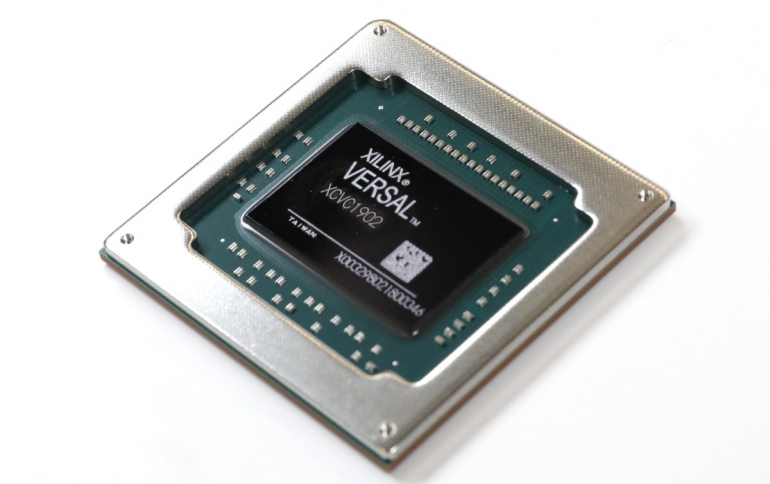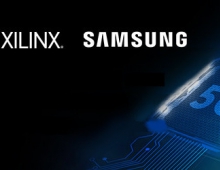
Xilinx Ships 7nm Versal ACAP For AI, Cloud, 5G And More
Xilinx Inc. has shipped Versal AI Core series and Versal Prime series devices to multiple tier one customers through the company’s early access program.
The chip tech is being employed on new breed of SoC (System On Chip) that can adapt to all kinds of compute and machine learning applications. Xilinx is known for programmable logic-based (FPGA) solutions that can incorporate Arm CPU cores and other special function engines, for anything from edge devices to the data center and cloud.
Versal is a new kind of chip technology that the company calls Adaptive Compute Acceleration Platform. It is a new category of heterogeneous compute devices with capabilities that far exceed those of conventional CPUs, GPUs, and FPGAs, according to Xilinx.
An ACAP is a highly integrated, multicore, heterogeneous compute platform that can be changed at both the hardware and software levels to dynamically adapt to the needs of a wide range of applications and workloads in data center, automotive, 5G wireless, wired and defense markets. Built from the ground-up to be natively software programmable, the Versal ACAP architecture features a flexible, multi-terabit per-second network-on-chip (NoC). The NoC integrates all engines and key interfaces, making the platform available at boot and programmed by software developers, data scientists and hardware developers alike. Through a host of tools, software, libraries, IP, middleware, and frameworks, ACAPs enable dynamically customizable accelerated computing solutions through industry-standard design flows.
Developed in TSMC’s 7-nanometer process technology, the Versal ACAP portfolio is the first platform to combine software programmability with dynamically configurable domain-specific hardware acceleration and the adaptability. A mix of scalar engines for embedded compute, adaptable engines for FPGA silicon programmability, and intelligent engines for AI inference and signal processing deliver improvements in raw performance and performance per watt compared to CPU and GPU implementations.
The Versal portfolio includes four additional series of devices, each architected to deliver scalability and AI inference capabilities for a host of applications across diverse markets, from cloud and networking to wireless communications, edge computing, and endpoints.
The top-end of the new Xilinx line-up is Versal AI Core that has peak engine throughput of up to 133 TOPs INT8 and 33 TOPs INT16 for inferencing and other AI workloads. These engines are comprised of 1 GHz VLIW/SIMD Vector cores, which are purpose-built for fine-grained, highly parallel processing. Xilinx says that the AI Engines are not licensed from a third party, they are an array of vector processors with tightly coupled memory that are hardware adaptable and software programmable and have been developed by Xilinx.
Also on board, the family of chips can be configured with robust DSP engines, a dual-core Arm-A72 and dual-core Arm Cortex-R5 complex, a PCIe Gen 4 X16 interface, 4 PCIe Gen 4 X8 interfaces, the previously mentioned multirate Ethernet MACs, DDR4 memory controllers and up to 32.75Gbps transcievers for high speed I/O. Xilinx’s Versal Prime Series is a more midrange offering targeting a wide range of applications from signal processing to 5G base stations and more.
Xilinx Versal AI Core and Prime series (PDF) are the first offering out of the gate in a family of six in total on the company’s roadmap. In the first half of 2020, however, Xilinx is targeting to deliver Versal AI Edge for low power edge compute applications, Versal AI RF which integrates RF functional blocks, Versal HBM with on board HBM2 memory controllers, and AI Prime with 112Gbps SerDes transceiver technology, among other higher-end features.
Xilinx will also deliver a suite of software frameworks, tools and libraries for engineers to design with Versal at a high level of abstraction in C, C++ and Python.
The Versal AI Core and Versal Prime series will be generally available in the second half of 2019.





















